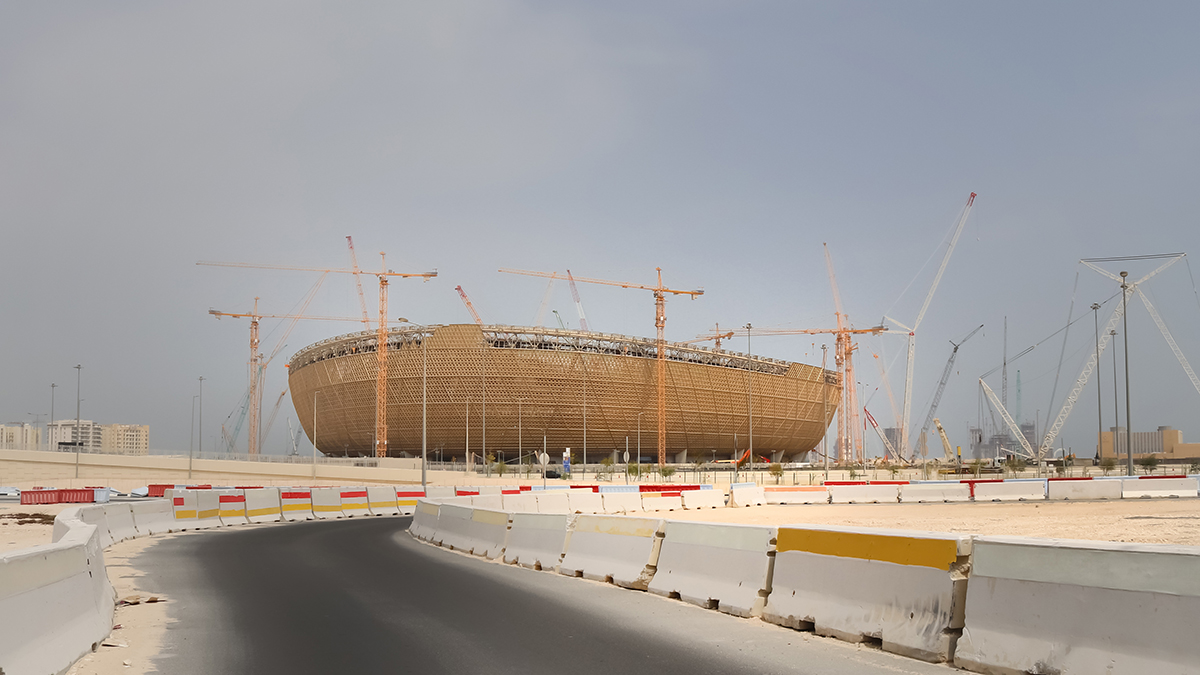Staying ahead of the game
Investments in both large and small infrastructure projects in Morocco will bolster the requirement for engineering and construction insurance to de-risk these capital exposures
The insurance industry can play a crucial role in supporting Morocco as the country prepares to hold the 2025 Africa Cup of Nations and 2030 World Cup
Moroccan football has been on the rise since the president of the Royal Moroccan Football Federation, Fouzi Lekjaa, unveiled a plan to build new stadiums and renovate existing ones.
His strategy has led to the construction of sports facilities that meet international standards, and huge investment in the sports tourism and hospitality sectors.
There have been major successes on the pitch, with the men’s national team reaching the semi-finals of the 2022 Fifa World Cup in Qatar, and the women’s national team reaching round 16 of the 2023 Fifa Women’s World Cup in Australia and New Zealand.
Morocco will host the 2025 Africa Cup of Nations (Afcon) and will be the second-ever African nation to front the World Cup, when it co-hosts the tournament in 2030 alongside Portugal and Spain. It will be the first country to host World Cup matches in North Africa. It will also host the Fifa U17 Women’s World Cup between 2025 and 2029.
Infrastructure
These global events are massive infrastructure undertakings, including new and improved roads, airports, hospitals, telecoms, hotels, transport links and, of course, stadiums.
Undoubtedly, hosting international events of this scale generates a sense of urgency, momentum, and collective energy, prompting both individuals and regulatory authorities to collaborate and support necessary changes.
In preparation for these tournaments, Morocco has committed around $2bn to the refurbishment of six football stadiums and the construction of a new stadium in Benslimane, which, with a capacity of 93,000 spectators, will be the second largest in Africa. The funding also aims to ensure stadiums meet the standards the Confederation of African Football has set for the 2025 Afcon, as well as the requirements Fifa has set for the 2030 World Cup.
Some construction projects are already in the tendering process and are requesting insurance quotes for budgetary purposes. The construction industry has seen an increase in the number of projects with longer lead times. This trend is expected to continue as the complexity of projects increases.
Hosting international events of this scale generates a sense of urgency, momentum, and collective energy, prompting both individuals and regulatory authorities to collaborate and support necessary changes
Morocco is spending roughly $100m on developing new transport networks and improving existing ones to enhance the country’s connectivity. Smart cities and mixed-use developments will also be key to urban development initiatives, and there is a large commitment to sustainability, responsible resource usage and minimising negative environmental impact. Such vast investments in both large and small projects will bolster the requirement for engineering and construction insurance to de-risk these capital exposures.
Since the announcement last year that Morocco would be a co-host of the 2030 World Cup, a port strategy has been put in place to improve the competitiveness of the economy.
Morocco has 13 ports open to foreign trade, 10 regional fishing ports, nine local fishing ports and six tourist ports. It is aiming to improve its port infrastructure and services by encouraging innovation, enhancing logistical performance, increasing their adaptability to long-term changes, all while respecting the rules of responsible and sustainable development.
Hosting the international football tournaments will enable the country to mobilise various sectors and accelerate development programmes.
Earthquake exposures
However, preparing for Afcon 2025 comes with challenges in the aftermath of the earthquake that struck in September last year and caused widespread devastation in Morocco, requiring a significant financial commitment to rebuild the affected areas.
Morocco is prone to earthquakes, and it is vital this exposure is taken into consideration in design and engineering, and adequate risk mitigation is implemented for the period of construction. From an insurer’s perspective, earthquake exposure should always be factored into pricing and consideration of appropriate deductibles.
The opportunity for the insurance industry in Morocco is clear by supporting long-term infrastructure and community projects, ensuring their sustainability and resilience via re/insurance solutions.
By implementing better building codes, adhering to international standards, and focusing on durability, Morocco’s construction industry can enhance the quality and longevity of these projects and contribute to the lasting prosperity and safety of the nation.
According to the Global Infrastructure Hub, Morocco will face an infrastructure investment gap leading up to these international tournaments, a gap insurance companies must help to bridge.
The slogan for the 2030 World Cup is “Yalla, Vamos” – “Let’s go” in Arabic, Portuguese and Spanish – which captures the essence of unity and excitement for the tournament.
The three countries are looking to organise the most sustainable, innovative and inclusive sports event ever. It is essential the development projects in Morocco bring benefits that last well beyond the World Cup, with insurance playing an essential role in ensuring their lasting impact.
James Cronje is head of construction and Maxwell Akpobasah is construction underwriter at Africa Specialty Risks


